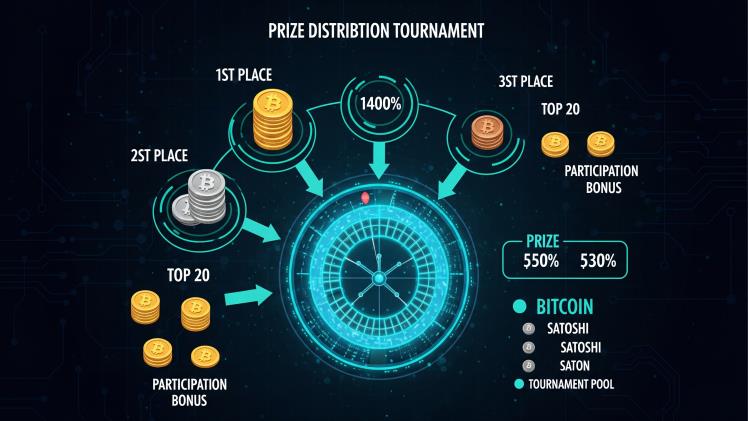
Bitcoin roulette tournaments operate through carefully designed prize distribution systems that allocate winnings based on player performance rankings. These competitions typically feature predetermined prize pools with structured payout schedules that reward top performers while maintaining fair distribution across multiple placement tiers. Tournament organizers establish clear rules for prize allocation before events begin, ensuring transparency in how cryptocurrency rewards reach winners.
Most bitcoin roulette tournaments utilize tiered prize structures where the total prize pool gets divided among top finishers according to their final rankings. https://crypto.games/roulette/bitcoin implement these systems to create competitive environments where players compete for predetermined cryptocurrency amounts. The distribution model varies depending on tournament format, entry requirements, and total participant numbers.
Entry fee calculations
Tournament entry fees directly influence prize pool sizes and distribution structures. Operators collect entry fees from participants and allocate specific percentages toward prize pools, typically ranging from 70% to 90% of total collected fees. The remaining percentage covers operational costs and platform fees. Some tournaments feature guaranteed minimum prize pools regardless of participation levels, while others scale prize amounts based on actual entry numbers. Entry fee structures can include flat rates, tiered pricing based on skill levels, or percentage-based calculations tied to player betting volumes. Free-roll tournaments eliminate entry fees and fund prize pools through operator contributions or promotional budgets. Variable entry systems allow players to choose their investment levels, with higher fees providing access to larger prize pools and more exclusive competition tiers.
Pool allocation methods
Prize pool allocation follows various mathematical models designed to reward performance while encouraging participation. Tournament organizers implement several distinct distribution methods:
- Percentage-based distributions – First place receives 25-40% of the total pool, with second and third places receiving progressively smaller percentages, and remaining funds distributed among lower-ranking finishers
- Bubble protection systems – Guarantee minimum payouts for players reaching specific ranking thresholds, preventing total losses for qualifying participants
- Winner-takes-all formats – Concentrate the entire prize pool on the top performer, creating high-stakes competitive environments
- Flat distribution models – Spread winnings more evenly across all qualifying participants, reducing variance in prize amounts
- Progressive allocation systems – Adjust prize percentages based on total participant numbers, ensuring optimal reward structures regardless of tournament size
Ranking determination systems
Tournament rankings depend on various performance metrics that determine final prize distribution. Most competitions track net profits or losses over predetermined periods or spin counts. Players start with equal virtual chip amounts, and final rankings reflect their relative performance compared to other participants. Alternative ranking systems include the highest single win amounts, the longest winning streaks, or combination scoring that weights multiple performance factors. Some tournaments incorporate handicapping systems that adjust rankings based on betting patterns or risk levels, ensuring fair competition across different playing styles. Time-based tournaments may include additional scoring elements such as consistency ratings or volatility measurements that influence final placement calculations.
Final settlement procedures
Tournament settlement involves comprehensive verification and processing steps to ensure accurate prize distribution. Organizers follow established procedures to complete tournaments:
- Activity verification – Review all participant betting histories and confirm ranking accuracy through automated and manual checks
- Prize calculations – Process cryptocurrency transfers according to predetermined distribution schedules and verify transaction amounts
- Dispute resolution – Address any technical issues or player complaints before finalizing payouts and prize transfers
- Record updates – Update player statistics, tournament histories, and leaderboard information across platform databases
- Winner documentation – Generate detailed breakdown reports showing final rankings, prize amounts, and blockchain transaction confirmations
- Regulatory compliance – Maintain records for tax purposes and regulatory requirements in applicable jurisdictions
These comprehensive procedures help maintain transparency and provide documentation that supports both player confidence and platform accountability in tournament operations.
